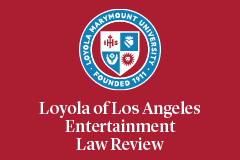Abstract
American voters have come to expect exaggeration, distortion, and mudslinging in political campaigns, but do campaigners have a First Amendment right to blatantly lie—to simply make up false statistics and “facts”? A recent appellate court suggests that lying is permissible in initiative and referendum campaigns. However, providing constitutional protection for such statements undermines the most compelling justification for the right to free speech: preservation of enlightened self-government. Voters cannot be expected to govern wisely or in accordance with their consciences when they are subjected to a barrage of lies. The Supreme Court already recognizes discrete areas where free speech rights are curtailed because of significant personal or public interests in protecting reputations, consumer choices, and governmental processes. Likewise, the Court should recognize that falsehoods told with actual malice in ballot campaigns are exempt from First Amendment protection.
Recommended Citation
Michelle Roberts,
Ask Me No Questions and I’ll Tell You No Lies: The First Amendments and Falsehoods in Ballot Question Campaigns,
33 Loy. L.A. Ent. L. Rev. 37
(2013).
Available at: https://digitalcommons.lmu.edu/elr/vol33/iss1/2


